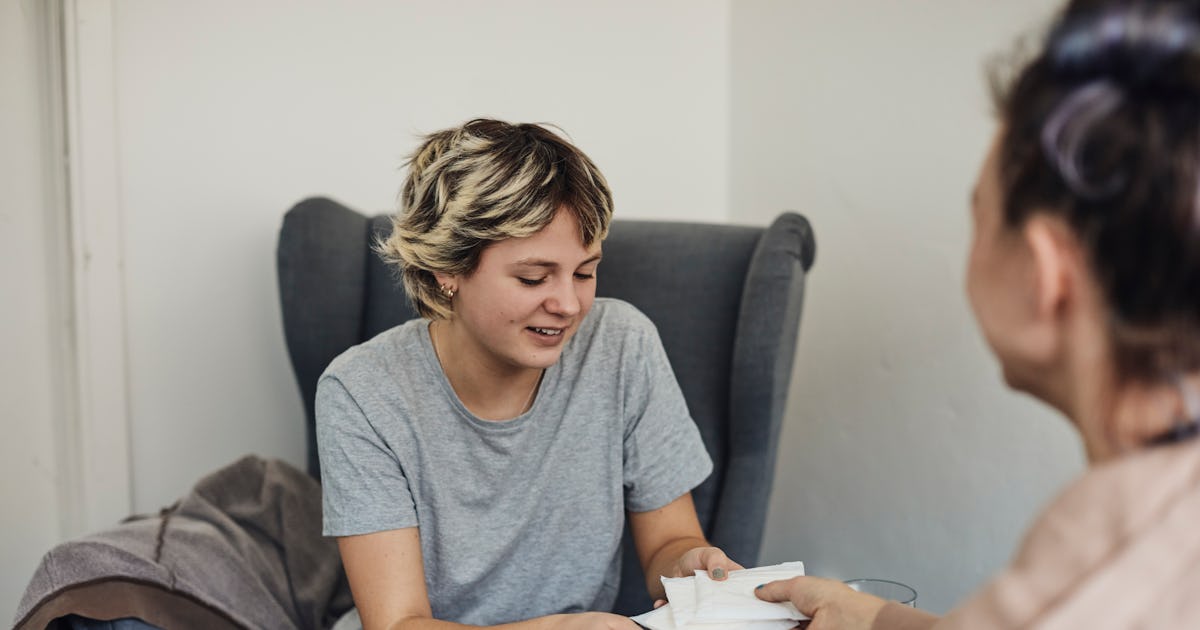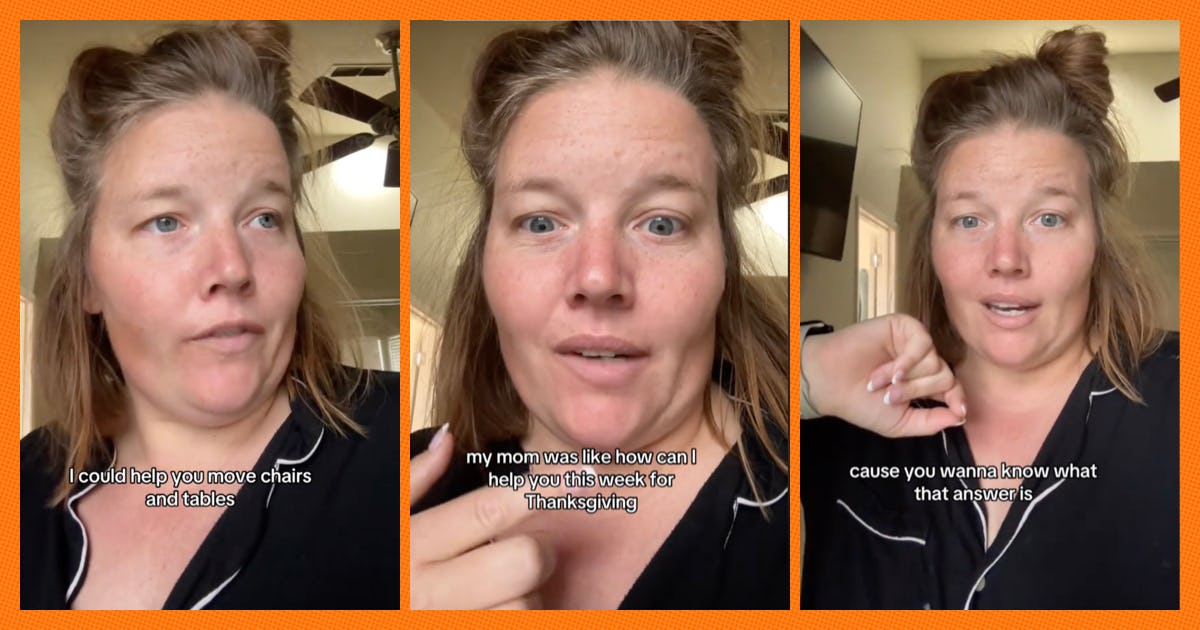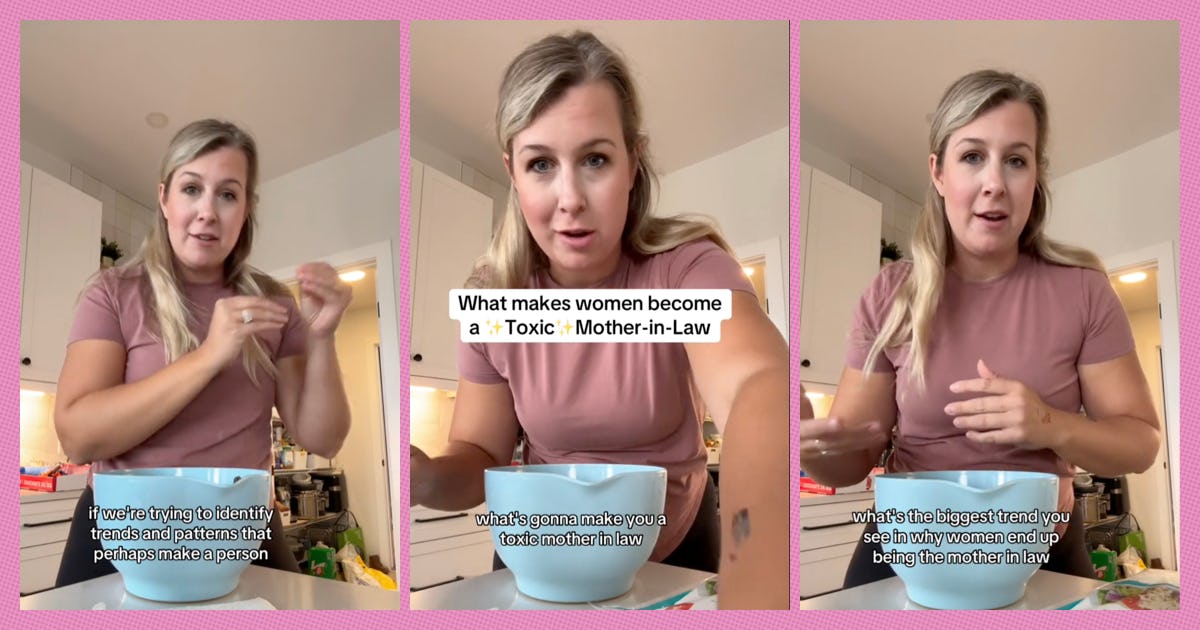Maybe your child is complaining of pain that sounds very similar to cramps, or you’ve noticed that they’ve been getting more acne lately. And then boom, it happened: their first period. But when the next month came… nothing. Now you’re frantically researching “Is it normal to have an irregular period after your first period?” You’ve had your period for decades but somehow can’t remember how long it took for your period to come on schedule.
Well, according to gynecologists and children’s health agencies, it’s completely normal for your child to have irregular periods. In fact, this may go on for years – and that’s okay.
Is it normal to have irregular periods after the first period?
Dr. Tara Streich-Tilles, assistant professor of obstetrics and gynecology at Duke University School of Medicine, said that in the United States, the average age of menarche (the medical term for the first menstrual period) is between 12 and 13 years old, and for most children they will be 15 Menstruation begins at age 1.
It may be normal for the first few years after menstruation begins to be irregular due to ovulatory dysfunction. “When a person first starts menstruating, the brain has to learn how to talk to the ovaries. The ovaries have to learn how to talk to the uterus, and then the ovaries have to go back and talk to the brain. This communication pathway can take two, sometimes even three years, to Mature,” Streich-Tilles said. She likens it to a game of telephone that takes years of practice to get a clear message from one end to the other.
Streich-Tilles says that during the first year or two of irregular menstruation, most children experience menstrual cycles not once a month, but every 21 to 45 days. Seattle Children’s Hospital says your tween period can last up to six months between your first and second period, and up to four months between your second and third period, so if you Don’t panic if you feel like your menstrual cycle is disappearing. Their bleeding tends to last less than seven days, and on a “heavy bleeding day,” they may use six (or fewer) pads or tampons. She noted that “the vast majority” of people experience predictable periods within three years of their first period.
If your child’s periods are irregular, should you talk to your child’s doctor?
Whenever you’re concerned about your child’s period, Streich-Tiles encourages families to contact their child’s primary care doctor. If your child’s period falls outside the 21 to 45-day range Streich-Tilles mentioned, or comes every three months or less, she says it’s definitely worth making an appointment.
“Irregular periods may have other causes, such as thyroid dysfunction or polycystic ovary syndrome. Abnormal bleeding may also be related to clotting disorders or bleeding disorders. Overall, bleeding disorders affect a small proportion of the population, but during menstruation This condition is increasingly occurring in patients who bleed excessively and who have to be hospitalized due to heavy menstrual bleeding,” Streich-Tilles said. “Certainly, any time a patient has questions about their menstrual pattern or a family member has concerns about their menstrual pattern, contacting the primary care physician or establishing care with a gynecologist may be an opportunity to address whether there are other underlying issues besides menstruation in the body. Learning how to menstruate.
The American College of Obstetricians and Gynecologists (ACOG) recommends that children begin receiving gynecological care between the ages of 13 and 15, and a gynecologist may be more helpful in helping your child manage her periods. If you’re worried about having your child have a pelvic exam, don’t be. “I always like to share with my family that most people don’t need a pelvic exam during their first visit. Just because they see their gynecologist doesn’t necessarily mean they need to,” Streich-Ti said. els said.
When your child is in a period of uncertainty and their body is determining their ovulation, it can be helpful to ask them to use an app or calendar to track their period. This lets them know when to expect your period and can be very helpful if you end up needing to seek your doctor’s advice. (There are some great period tracking apps created by women.) Otherwise, just make sure they always keep extra period products in their backpacks and know they can ask you about any ideas they have.




